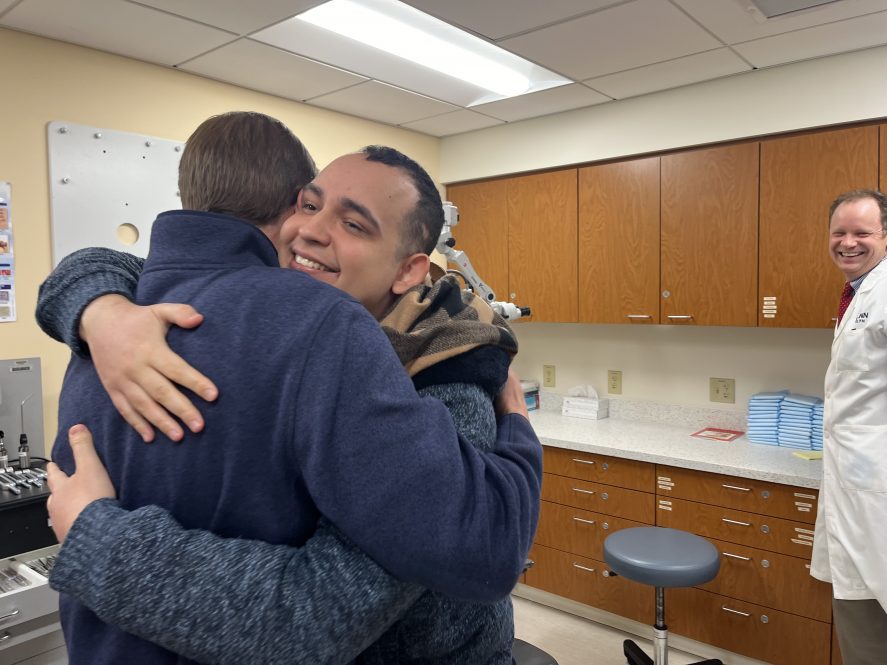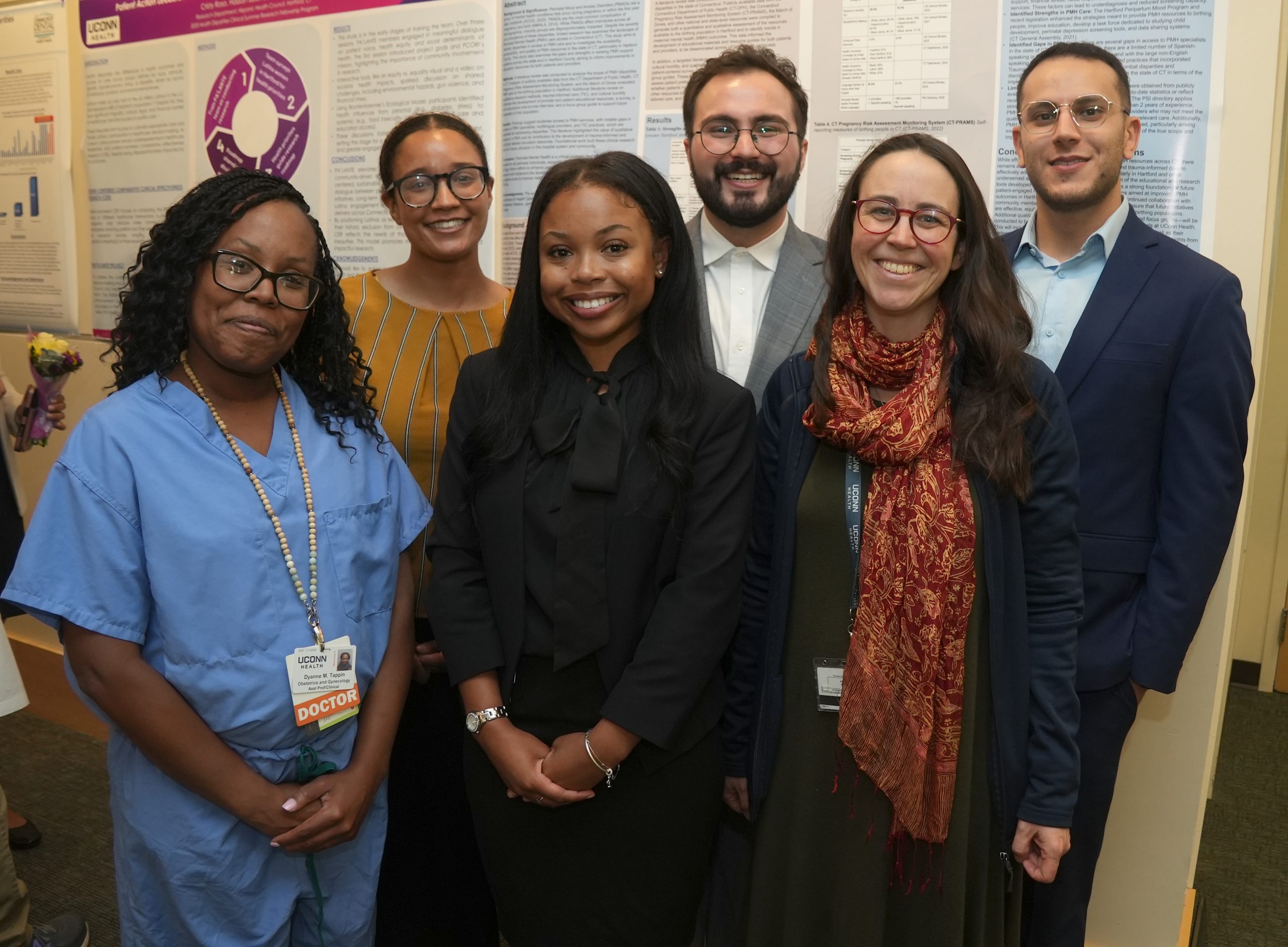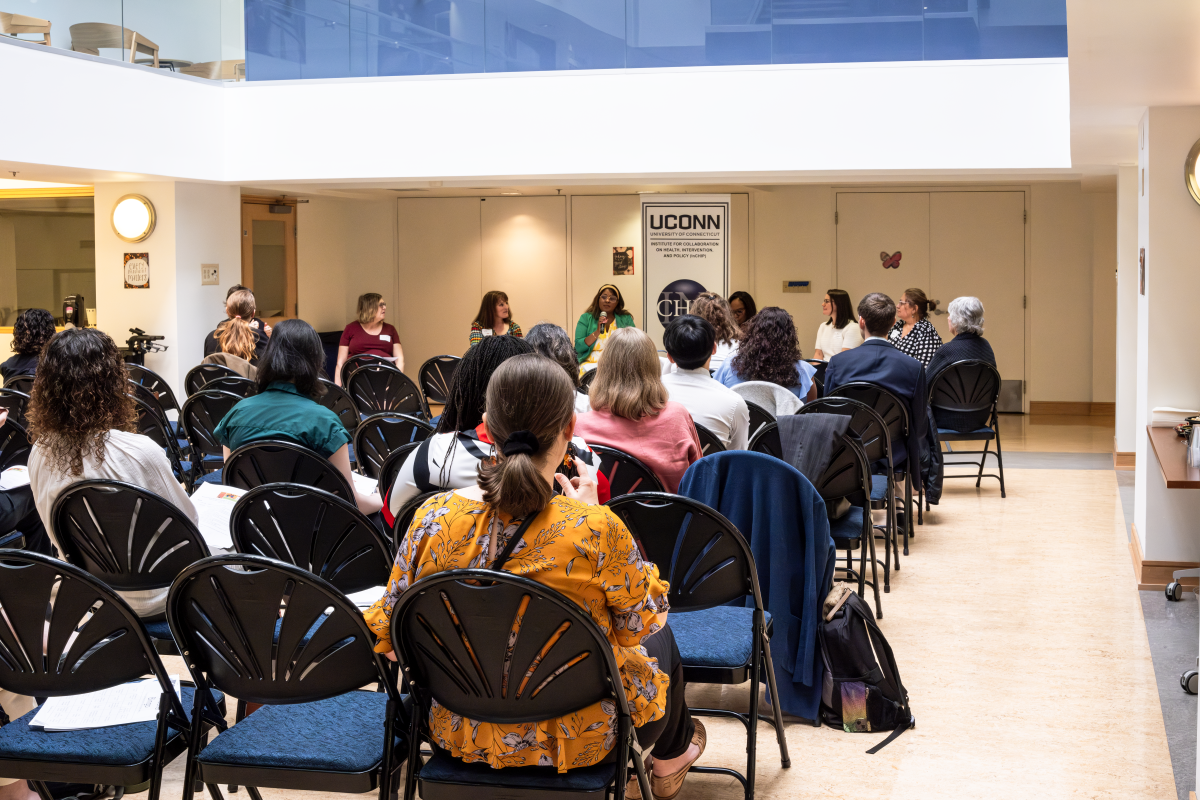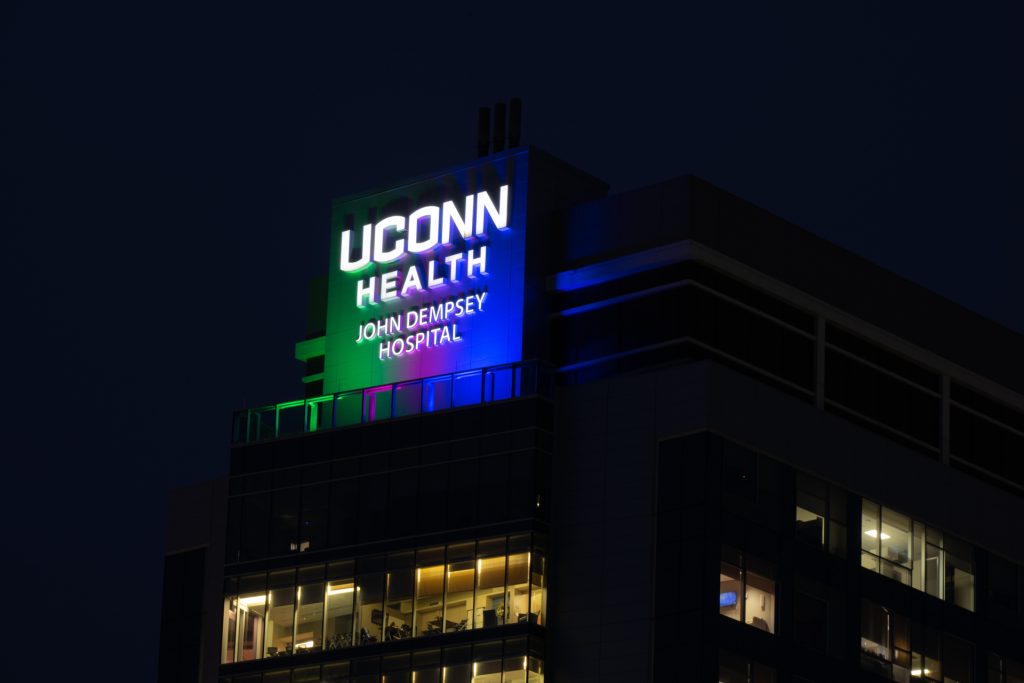
February 29 marks Rare Disease Day. In honor of the awareness day and the importance of breaking down barriers for the estimated 30 million Americans stricken with a rare condition, UConn Health shares the inspiring, decade-long journey of Rafael Azevedo of Brazil. He finally found hope and a cure for his severe pain in Connecticut, at the state’s only public academic medical center.
Azevedo had been suffering from neuralgia of multiple cranial nerves. The intense facial and ear pain he’s been long battling is sadly known as “suicidal disease.” But a few months ago Azevedo had successful advanced brain surgery at UConn John Dempsey Hospital to finally bring him relief.
This now very happy rare disease patient and his wife, Luana Diniz Tormin, say UConn Health and its doctors saved his life, and that their hearts are now full of hope.
“We have been all over Brazil and the world to find a cure. The cure was here in Connecticut,” says Tormin.
His surgery on Dec. 1, 2023, was made possible first by the anesthesiology team at UConn Health. They gifted free anesthesia services to this rare disease patient while the patient’s family was able to crowdfund the remaining costs to pay for his surgery and hospitalization.
The anesthesia gift was critical for Azevedo’s brain surgery to proceed and with UConn John Dempsey Hospital’s surgical team’s expertise, in its state-of-the-art operating rooms and with its powerful imaging capabilities including high-tech surgical microscope with augmented reality (AR) computer-generated digital imaging to visually assist surgeons during complex brain surgery.
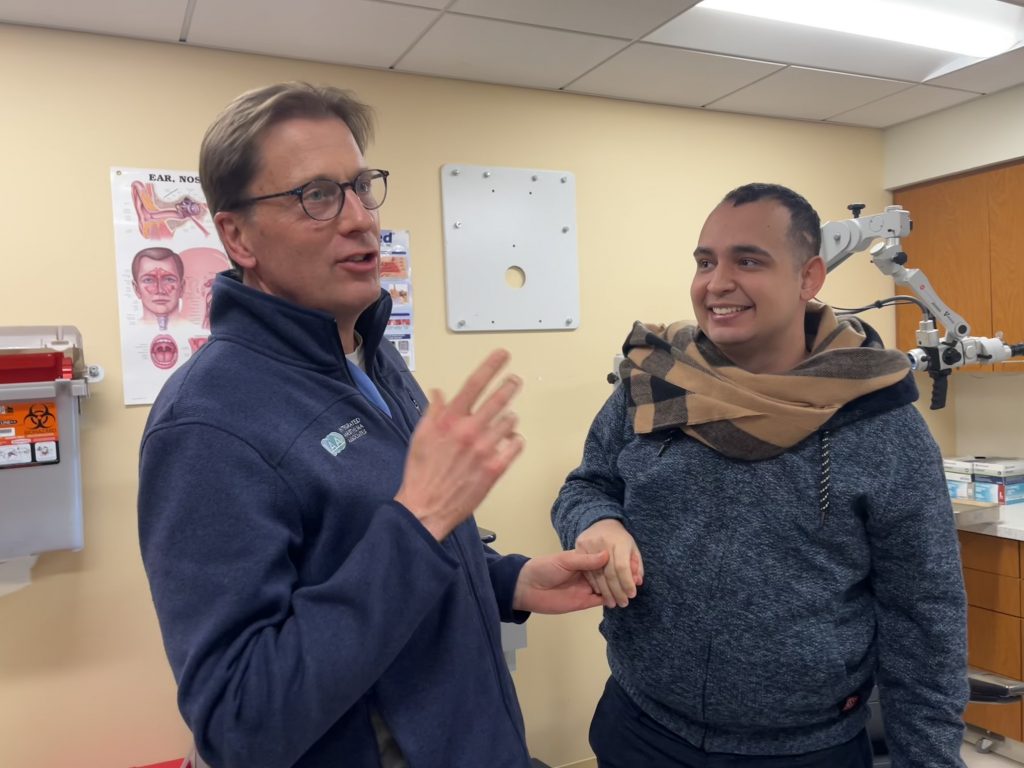
His kind-hearted anesthesiologist at UConn Health was Dr. Leonard E. Kulicki from Integrated Anesthesia Associates.
“Rafael’s success story is very heartwarming and amazing,” says Kulicki. “We are very proud and privileged to be part of Rafael’s care. His case was very rare and challenging, but very fulfilling on many levels for our anesthesia team to have helped him.”
Kulicki adds: “Brain surgery is very delicate, and we are grateful to be able to provide the best circumstances to allow his skilled surgeons to do their job and have the safest and best outcome.”
Thanks to anesthesia services, multidisciplinary teamwork, and the state-of-the art technology, surgeons performed microvascular nerve decompressions of the intermediate nerve and the glossopharyngeal nerve, along with the vagus nerve. In addition, a tympanic plexus neurectomy was performed to cure Azevedo’s intractable pain syndrome.
“We thought it was impossible to get to this day – but thanks to UConn Health we have done the impossible,” says his wife. “It’s been a successful journey.”
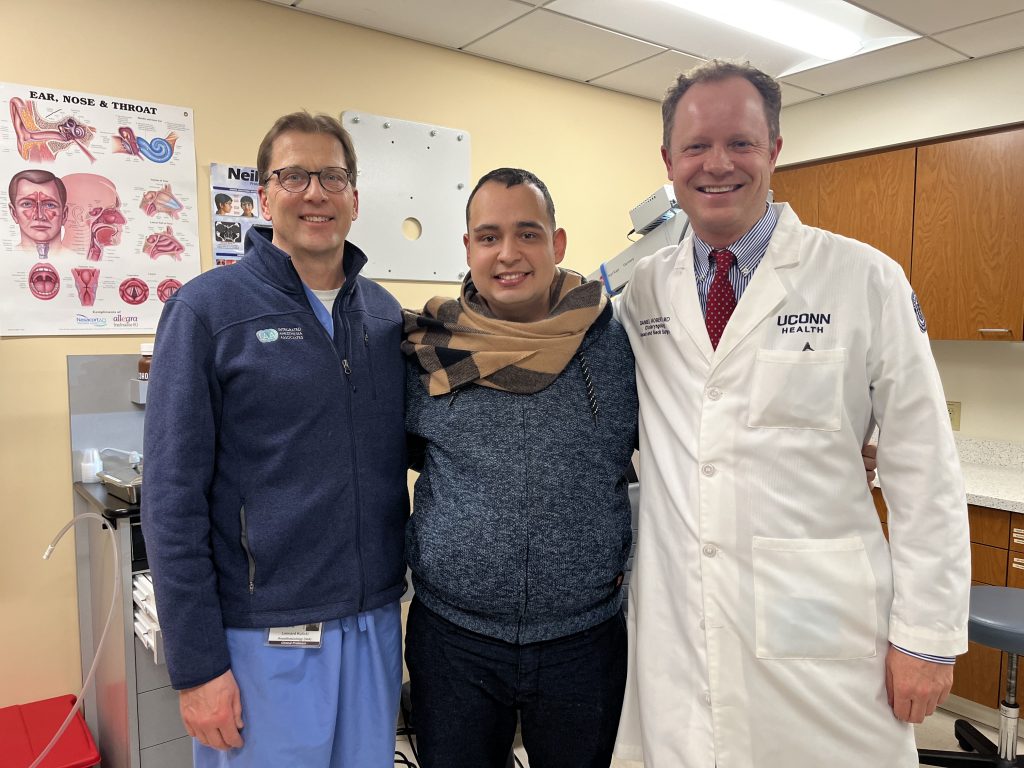
For Azevedo, “It’s a dream come true. I have the best doctors in the world.”
Azevedo came to Connecticut from Brazil for care at UConn Health in September 2023 right after visiting the United Nations to advocate for greater rare disease treatment options and funding for care. That’s when in-depth planning began for this personalized, complicated brain surgery at UConn Health by Chief of Neurosurgery Dr. Ketan Bulsara and ENT surgeon Dr. Daniel Roberts, co-directors of the Cranial Nerve and Brainstem Disorder Program.
“We are ecstatic for Rafael and his future,” says his surgeon, Roberts. “His care was a special opportunity to be able to help someone with a very rare condition. It’s what we do at UConn Health, we try to help.”
Azevedo learned about the surgical experience of Roberts and Bulsara through Brazilian neurosurgeon Rômulo Alberto Marques, a pain specialist at the Federal University of Goiás, who found the research published on the internet by the two UConn Health doctors after months of in-depth study on Azevedo’s rare case.
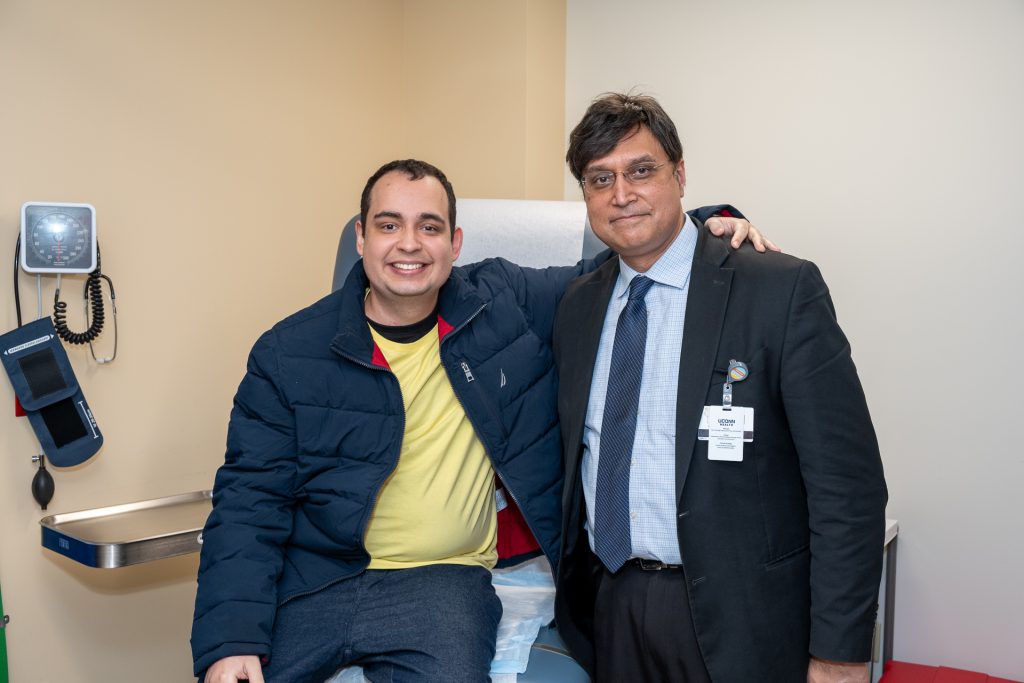
“Anyone who comes to UConn Health is given hope for a cure,” says his neurosurgeon Bulsara. “We are very happy the pain syndrome that has afflicted Rafael for 10 years has resolved. He can now progress on with the rest of his life and reach his ambitions of becoming a pilot.”
“Many doctors we saw believed that pain relief was not possible,” says Azevedo’s wife. “He now has moments where he does not feel pain in his right ear, and this had never happened before the surgery.”
Azevedo shares: “Before surgery, and for the last 10 years, no major pain-killer medication had any effect. I can now manage my pain. Just over-the-counter pain medicine can help me now.”
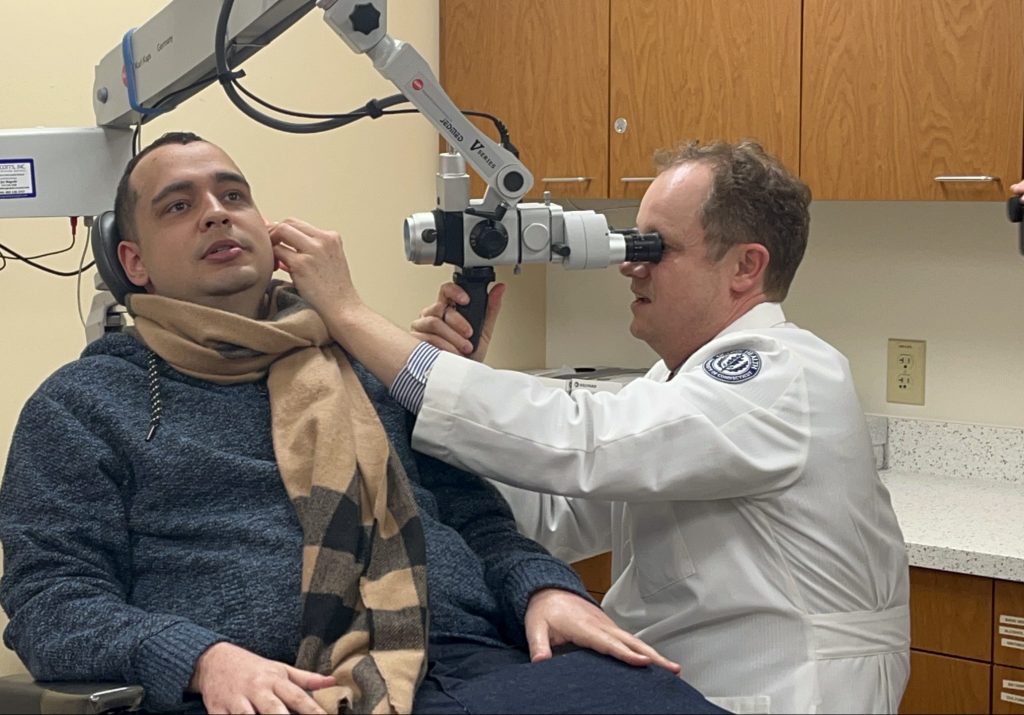
What’s next for Azevedo?
“My next step is pursuing my dream of becoming an airline pilot,” says Azevedo, who also aims to help other rare disease patients like him too.
“Our work is based on the 2021 resolution in favor of rare diseases, launched by the UN. A fight so that this vulnerable population has access to swift diagnosis, effective treatment and that each individual can be reintegrated into society,” says Tormin.
Azevedo concludes: “After all my suffering, I don’t want to see others suffer, with no access to cures or doctors. It was hard for me and us. Most people in my condition commit suicide. I want to stop suicides from happening. I want to help take care of other people. I want to help people reach the treatment they need.”
Rafael shares that he will next undergo a more minimally invasive, unique procedure with Roberts to address his other ear. He says Roberts is the only doctor in the world with a published case study on the rare condition.
Brazilian TV News Special:
